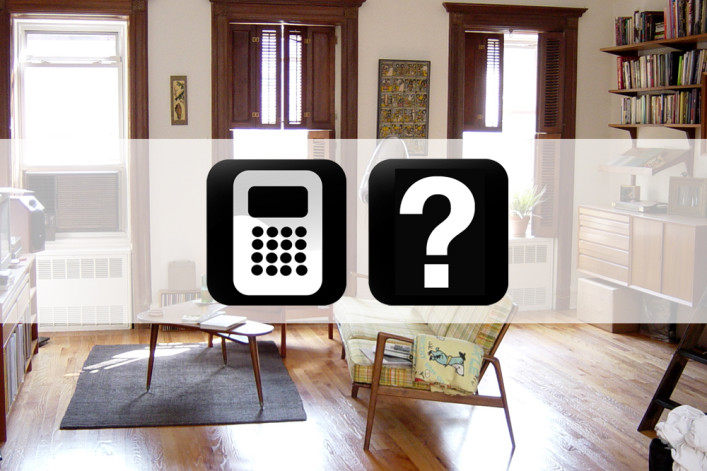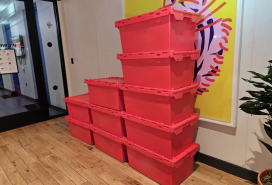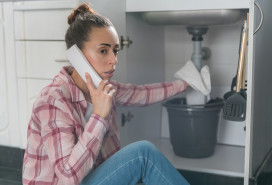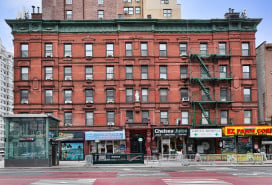Ask an Expert: Can I mortgage my co-op to buy another NYC apartment?

Q: I own a three-bedroom co-op near Columbia University worth $800,000. I’ve paid off the mortgage, so I only pay maintenance fees. I’d like to buy a second apartment in the city, and I have a good job and excellent credit. The trouble is the down payment.
I’ve thought about taking out a loan against my three-bedroom to finance the purchase of the second home. Is this possible? If so, what are the pros and cons?
A: The short answer is yes: “You can use the equity in your current home for the down payment on a second,” says mortgage banker Robbie Gendels of National Cooperative Bank.
However, even if you can get financing this way, you’ll run into some other hurdles--particularly if your second apartment is a co-op, our experts say.
The upsides
What you’re doing is called “leveraging”—using financing to increase the return on your investment, says real estate attorney Steven Wagner of Wagner Berkow.
And there are some benefits, such as low interest rates and tax deductions on your mortgage interest payments, says Deanna Kory, a real estate broker at the Corcoran Group. Also, financing the purchase will free up cash for other uses, notes Wagner.
Planning for the costs
But first, you’ll need to make sure you can actually swing both mortgage payments, says Gendels. And that goes for scenarios where you lose your job or, if you wind up renting out the second apartment, you experience vacancies and rent fluctuations, experts say.
Plus, this set up can increase the costs of borrowing, since you’ll be paying closing costs on the loan on your existing home, and “borrowing more means that more has to be repaid," Wagner says.
Triplemint's Off-Market Advantage
Discover off-market properties in your dream neighborhood that perfectly suit your needs and budget. Meet and deal with sellers before their apartment hits the market.


Let Triplemint's off-market team give you exclusive access to apartments in your price range and desired neighborhood that no one else has seen. More options, less competition, no bidding wars.
Double board approval
Assuming you can cover the monthly payments, you’d also need to get approval to take out the first loan from the co-op board at your current home, which is by no means guaranteed, experts say.
“[The board] may ask why you are taking out such a loan. You can say what you intend to do, but if the co-op doesn’t think buying a second home is within your means, it may not approve the loan,” says Kory. “Best to say something benign and true which could be that you want liquid funds in the bank as a contingency fund and/or that you want to take advantage of low interest rates and have the tax deduction of the interest payments.”
As for the second home, if it’s a co-op, you’ll have to get approval from that board as well, which could prove difficult. For example, you may find that you don't have sufficient liquid assets to qualify to buy a co-op, notes real estate broker Gordon Roberts of Warburg Realty.
“The second mortgage would be considered a liability, and your three-bedroom is not a ‘liquid asset,’ so you'd have very little to record in the ‘assets’ column” of the mortgage application, he says.
Just for you--or a tenant?
Also, the second co-op board will likely want to know whether you’re using the apartment as a second home—just for you—or as an investment property that you rent out. If it’s the latter, you may have an uphill climb finding a co-op board that will approve this.
“Most co-ops require you to be a primary resident or possibly use the co-op as a second home,” Kory explains. “Most will not allow lengthy rentals and require that you live there for a while before renting. Rentals in co-ops are done usually because a person is transferred for work for a year or two … outside the city. Co-ops do not want owners to consider their apartments as an investment property.”
Keep in mind as well that if you plan to live in the second apartment and rent out the first, you’ll run into the same problems.
The other option is to buy a condo, which will save you the trouble of dealing with a second co-op board (though they do tend to be more expensive).
“If you wish to buy a condo to use as an investment property, that is fine, and in this case as well, the bank approval is the main approval needed,” Kory says.
But Roberts was pessimistic about either scenario: “I don't see how you could successfully buy a condo or co-op apartment in the city,” he says.
A different tack
Still, you have other options.
For one, “an owner-financed investment property outside of the city might work,” Roberts says, “but I would sit tight while you have low expenses, and build your equity.”
The other option is to take out a home equity line of credit, known as a HELOC, which also uses your home as collateral but can take less time to get than the four to six weeks it typically takes to arrange a mortgage, says Gendels.
With a HELOC, you could also invest in renovations for your current apartment, Roberts suggests, adding that a price of $800,000 for a three-bedroom near Columbia sounds like a “deal.”
“Maybe you could get more for if it were newly renovated,” he says. “If you sold that at a great price, you'd have a pile of cash. Then you could go shopping for a new apartment in the city.”
Related posts:
Ask an Expert: Are condo boards as powerful as co-op boards?
Ask an Expert: How much can my condo board charge me to rent out my place?
Ask an Expert: Different sublet rules for different co-op owners: Fair or foul?
Turn your apartment into a piggybank without breaking the law
Board approved: How to impress a NYC co-op board
How to spot a good NYC investment property
Trouble at home? Get your NYC apartment-dweller questions answered by an expert! Send us your questions.
See all Ask an Expert.
























